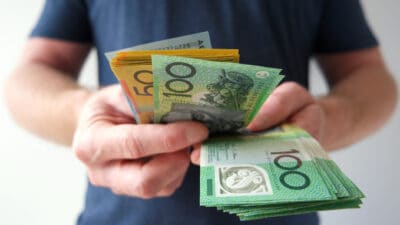The Tesla Inc (NASDAQ: TSLA) share price is "ridiculous", and its lithium batteries are "inferior".
That's what Michael Burry – the investor who's profited millions from betting against overhyped companies and market speculation – has been saying about the world's most valuable car manufacturer.
He's put his money where his mouth is: betting US$534 million against Tesla's share price through 'put options'.
Since it was founded 17 years ago, Tesla has become one of the most famous brands on earth and made its CEO, Elon Musk, the world's richest man. He's since dropped back to third as Tesla shares have faltered lately and fallen in value.
The rapid rise of the lithium battery-powered electric vehicle pioneer is largely based on the global race towards renewable energy sources. But it's also involved an incredible amount of market fervour, as investors and consumers alike scramble towards "future tech".
Burry's runs on the board
Burry, the former Scion Capital hedge fund manager, has always been sceptical of market fervour.
The 49-year-old became one of the world's most famous investors when he and his fund profited nearly $800 million by shorting subprime mortgages before the 2006 US house market crash.
He later drew mainstream attention after Christian Bale portrayed him in 2015's smash-hit film The Big Short.
But Burry had successfully doubted periods of inflated market speculation since pre-1999 when he made a fortune shorting tech stocks before the dot-com bubble. More recently, he helped kick-start the GameStop frenzy by taking a stake in the video game retailer.
The investor and physician held put options on more than 800,000 Tesla shares at the end of last month, worth around $534 million. The strike price that Burry is shorting the Tesla shares for is unclear. But if the clean-energy car maker's price does fall below Burry's valuation, he'll make an immense profit off potentially thousands of Tesla shareholders.
The longest put options tend to expire within three years, so Burry may be banking on some time before he sees his short positions come to fruition. But he's clearly drawing parallels between Tesla, the '90s tech market crash, and the 2000s global financial crisis.
Burry deleted his Twitter account after US federal regulators visited him about his tweets – the source of these claims. Still, in a tweet that's since been deleted, he called the current Tesla share price and valuation "remarkably similar to 1999 and 2006".
"I live in the land of $TSLA," Burry continued. "I know what a Tesla car is. I talk to the mechanics and dealers. But being short is so much more than that."
What's wrong with Tesla?
Burry isn't the first to doubt Tesla's valuation. Elon Musk himself wrote that the "Tesla stock price is too high" back in May last year when the price was only $150 per share.
It's now worth $576 per share, but that's already accounting for a 20% wipeout so far in 2021. In January, it rose as far as $880.
Critics have pointed out that despite Tesla's valuation dwarfing other car makers – Tesla's market cap is roughly 5 times that of the world's largest auto manufacturer, Volkswagen – the company relies on regulatory credits for profitability.
During Tesla's share price highs in January this year, the company boasted a fully diluted market cap of nearly $1 trillion. Many analysts noted the company's earnings could have risen tenfold and still could not justify that valuation.
Tesla aims to sell more than 20 million electric vehicles (EVs) per year, and its revenue has been rapidly rising in recent years. But its car sales remain minuscule compared to the world's largest automotive companies, with total sales figures in the hundreds of thousands and production capacities as low as 4% of Toyota's.
The world's largest automotive manufacturers, such as Volkswagen and Toyota, are now storming into an increasingly competitive electric vehicle market, many with much cheaper offerings to match their global factory output.
It's in the mass market that Tesla may struggle most. The company's cheapest offering, the Model 3, retails for around $60,000 in Australia, significantly more expensive than its rival cut-price EV offerings from MG, Nissan, Renault and Hyundai.
It's also double the price of comparable hybrids on the market from the likes of Toyota and Subaru, which benefit from entering the market years earlier.
Tesla has long been promising a budget-priced Model 3 that would retail around the $45,000 mark, but it's never eventuated. This is becoming a habit of sorts, just one of the many public timeframes that Musk has failed to reach.
Tesla's major strength is its up-market offerings, and the company has a stranglehold on the US EV market, where it accounts for around 80% of electric vehicle sales in the country.
This is partly thanks to a generous tax credit system the US government handed Tesla buyers, which has now ended, making foreign EV manufacturers much more competitive.
In Europe and Asia, the EV market is a very different story, with Tesla market share around the 20% mark and rapidly declining.
Tesla's tech battle
Tesla's major advantage in expansive nations like the US and Australia has been the traditionally unparalleled range that its EVs offer. But now it seems its pioneering electric batteries may also be losing ground.
Toyota is scheduled to release its new solid-state electric battery this year, which could charge in as quick as 10 minutes due to the high density of its electrolyte cells. Tesla is reportedly yet to develop the technology.
Meanwhile, at the upper end of the market, Tesla's flagship Model S's 600-kilometre range is reportedly set to be outgunned by a new EV disruptor: the energy-dense battery manufacturing start-up Lucid Motors.
The Lucid Air range of luxury EVs, which boasts battery ranges exceeding 800 kilometres and batteries that charge "in minutes", retail for a similar price to the Model S. Lucid began accepting Australian orders in November last year.
Analysts fear that new challenges directly to the heart of Tesla's market may come thick and fast over the coming years.
There have also been question marks over the safety of Tesla vehicles. The company has drawn significant criticism over electric door handles that fail to extend during fires (a susceptibility of all-electric vehicles), which have previously resulted in gruesome road fatalities.
There are also doubts from some quarters about the long-term future of lithium batteries.
Proponents of hydrogen fuel cells believe the renewable energy source will one day replace lithium batteries entirely due to hydrogen's superior potential power delivery, portability and manufactural simplicity.
Musk, however, has been famously derisive of hydrogen, calling it "fool cells".
Tesla speculation
Many of the justifications around Tesla's share price rely on intense speculation, both from outside investors and company figures like Musk himself.
Musk recently proposed to shareholders that the company could earn "$50 billion of incremental profit annually" from unleashing self-driving Teslas onto the streets, which would herald a shift towards greater gross profit margins for the company as a potential software manufacturer.
However, analysts have again disputed the claims, saying Tesla's bullish expectations have the potential to be vastly undercut by increasing competition, not to mention a regulatory market that doesn't yet exist.
It's all far from doom and gloom. Tesla expects to increase its vehicle sales by an average of 50% annually over the next few years, while diversification opportunities in solar and its home battery business present significant room for growth.
The real question mark on Tesla's future might be whether Musk's pioneers can keep pace with the electric car industry behemoth they helped create.









